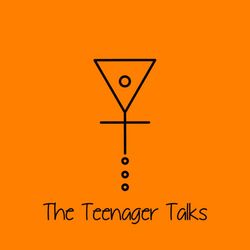

In this section, I will give you tips on the different types of Depression and how to treat them.
Depression is a mental disorder characterized by persistent sadness and a lack of interest in activities. It is one of the most common mental disorders, affecting about 10% of people at any given point in time. Depression can manifest itself in children and teens as excessive irritability or anger, withdrawal from friends or family, difficulty concentrating, changes in sleeping patterns, changes in eating patterns or weight, acting out with violence or aggression; the list goes on.
Many factors can contribute to a child's depressive episode, such as genetics, brain chemistry imbalance (i.e., neurotransmitter imbalance), stressful life events (i.e., death of a loved one), trauma and neglect.
Depression is a mental disorder that impacts the way people think, feels, and acts.
There are many different causes of Depression. Biological factors such as genetics may play a role in some cases. In other cases, Depression can be caused by traumatic events someone has experienced or from things like chronic stress or sleep deprivation.
Depression in children is becoming more common, and it's important to take them seriously when they talk about their feelings. Depression can be hard to recognize in children because their symptoms are different than adults' symptoms.
Depression is a common mental health disorder that can affect children and teens.
Depression is typically characterized by feelings of sadness, lack of interest in activities they used to enjoy, and weight loss or gain. It can also lead to anxiety or anger problems. These symptoms are the most common in teens, but children may also experience Depression.
Children and teens may experience some of these symptoms:
Sadness
Loss of interest in activities
Changes in sleep patterns
Changes in appetite (weight loss/gain)
Tiredness or fatigue
Depression in children is not common, but it does happen. Depression in children can be difficult to identify and diagnose. There are several signs to look for to know if your child is suffering from Depression.
The signs and symptoms of childhood depression can be different from adults', but the universal symptom is low self-esteem. Other symptoms include withdrawal from friends, family, and other activities they once enjoyed; tearfulness or frequent crying; difficulties at school with poor grades (academic problems)
Irritability; changes in sleep patterns (either too much or too little); changes in appetite (sometimes a big appetite with weight gain, sometimes loss of appetite with weight loss); persistent boredom or apathy; feelings of worthlessness or guilt; difficulty concentrating and remembering things; thoughts about death and suicide; rapid.
—The Complete Guide to Treating Depression in Children and Teens is a book that covers all the different types of treatments for depression in children and teens.
The book starts by defining what Depression is, breaking it down into different types and explaining how to recognize the signs of Depression. It then reviews various treatment options such as therapy, medication, exercise, yoga, etc. Finally, it talks about how parents can help their depressed child or teen through these treatments.






